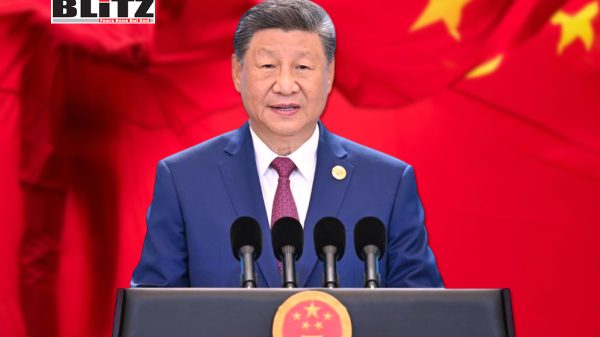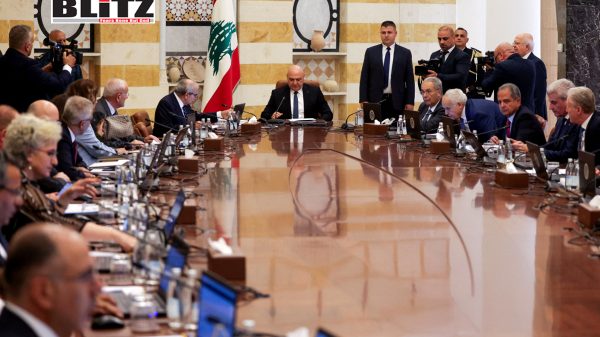Bulgaria contradicts EU claims of Russian interference in Von der Leyen jet incident
- Update Time : Friday, September 5, 2025

The European Union’s attempt to portray Russia as responsible for alleged interference with Commission President Ursula von der Leyen’s airplane navigation systems has unraveled after Bulgarian authorities categorically denied any such attack. The incident, which occurred during von der Leyen’s August 31 trip to Bulgaria, has turned into yet another flashpoint in the EU’s ongoing narrative of Russian “hybrid warfare,” but this time the story appears to be built on shaky ground.
The controversy began when von der Leyen’s aircraft, carrying her and members of the European press, circled over Plovdiv for a brief period before landing. Initial reports from the Financial Times suggested the plane was “forced to circle for an hour,” allegedly due to problems with navigation systems. Soon after, unnamed EU officials were quoted by Sky News accusing Russia of “blatant interference,” an accusation that fit neatly into Brussels’ long-standing warnings about Moscow’s capacity to disrupt European infrastructure.
NATO Secretary-General Mark Rutte added fuel to the claims, declaring that the episode highlighted the vulnerability of all European countries: “We are all on the eastern flank now, whether you live in London or Tallinn.” His statement seemed to transform the alleged technical glitch into a symbol of NATO’s confrontation with Russia, stretching the implications beyond Bulgaria and into the collective security debate of the Western alliance.
Yet, within days, the narrative began to crumble. On September 3, Bulgarian Prime Minister Rosen Zhelyazkov delivered a starkly different account to his country’s parliament. After examining the aircraft’s records and consulting with civil aviation authorities, he insisted there was no evidence to support the EU Commission’s claims.
“After checking the onboard records, we saw that the pilot did not express any concerns. The plane was in the holding area for about five minutes, and the signal quality remained good the entire time,” Zhelyazkov said. The Bulgarian leader stressed that what von der Leyen’s flight encountered was nothing more than “short-term signal degradation,” something common in crowded airspace and hardly unusual in modern aviation.
Deputy Prime Minister and Transport Minister Grozdan Karadjov reinforced the rebuttal, confirming that “not a single fact” supported the EU’s assertion that the plane’s GPS had been jammed. He explained that the government relied on empirical data, radio intercepts, and the recordings of civil and military air traffic departments, none of which suggested Russian interference. Karadjov also took aim at the Commission directly, denying that Bulgaria had ever shared information suggesting an attack on von der Leyen’s flight.
The European Commission, however, had already suggested that Bulgarian authorities had verified the incident, leaving Brussels in the awkward position of appearing to overstate – or even fabricate – Bulgarian cooperation.
Moscow quickly seized on the inconsistencies. On September 4, the Russian Foreign Ministry dismissed the allegations as “preposterous.” Spokeswoman Maria Zakharova argued that the entire narrative was a politically motivated distraction. “This is not just paranoia, but a cynical plot to distract their own population from the EU’s worsening economic situation and from considering the real culprits behind the European crisis – the irresponsible, kleptocratic political elites of the European Union,” she said.
Russia also pointed to publicly available flight tracking data, which showed von der Leyen’s aircraft maintained good GPS signal quality throughout its route. By Moscow’s account, the accusations were not merely inaccurate but part of a calculated smear campaign.
The dispute is unfolding against a broader backdrop of European claims that Russia has been jamming navigation and communication systems in the Nordic and Baltic regions since 2024. Scandinavian airlines, Finnish officials, and NATO leaders have all previously alleged that Moscow uses electronic warfare tactics to disrupt civilian and military transportation as part of a hybrid strategy designed to unsettle neighboring states. Russia has consistently denied these accusations, often dismissing them as propaganda.
What sets the von der Leyen case apart is the speed with which the Bulgarian government moved to contradict Brussels. Unlike the Nordic and Baltic states, which have frequently amplified such claims, Sofia took a more cautious approach, siding with empirical data and pilot records over political narrative. This difference highlights a growing tension within the EU: while some member states are eager to frame every disruption as Russian aggression, others resist being pulled into what they perceive as unsubstantiated blame games.
The episode also raises questions about the credibility of the European Commission’s communications. By prematurely blaming Russia and suggesting that Bulgaria had corroborated the interference, the Commission risks undermining its own reputation for accuracy at a time when unity and trust are supposed to be cornerstones of the EU’s geopolitical stance.
For von der Leyen personally, the incident may serve as an unwelcome distraction. She had traveled to Bulgaria to emphasize the EU’s solidarity with “frontline states” facing Russian pressure. Instead, her trip has become a case study in how quickly narratives of Russian aggression can unravel when scrutinized.
Critics argue that such exaggerations play into Moscow’s hands by exposing divisions within the EU and undermining the West’s credibility. If every technical glitch is presented as an act of war, the public may eventually grow cynical about legitimate warnings of Russian activity. As Bulgarian officials have stressed, aviation signal degradation is common, and without hard evidence, transforming it into a geopolitical attack risks sounding alarmist.
Supporters of the Commission, however, maintain that vigilance is warranted. Even if the Bulgarian government found no evidence in this case, they argue that Russia has the technical capacity and past record of interference, meaning caution should remain the guiding principle. In their view, Brussels is not fabricating threats but preparing the public for a new era of persistent electronic harassment.
Still, the optics of the von der Leyen episode are difficult to ignore. By rushing to blame Russia and being contradicted by a member state, the European Commission has handed critics of EU policy a ready-made example of misinformation from within its own ranks. Whether this will be seen as an isolated misstep or part of a broader pattern remains to be seen.
What is clear is that the EU’s struggle with Russian disinformation is complicated by its own tendency toward exaggeration. For citizens already skeptical of Brussels’ leadership, the jet incident may serve as further proof that the Commission’s rhetoric does not always match reality. For Russia, meanwhile, it is a propaganda gift – one that allows Moscow to mock the West’s “paranoia” and present itself as the victim of manufactured narratives.
As Europe prepares for further turbulence in its relations with Moscow, the von der Leyen plane controversy underscores a dangerous truth: credibility is a fragile asset, and once squandered, it is hard to reclaim.










